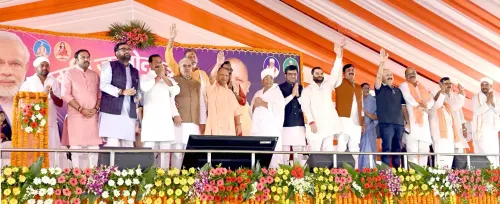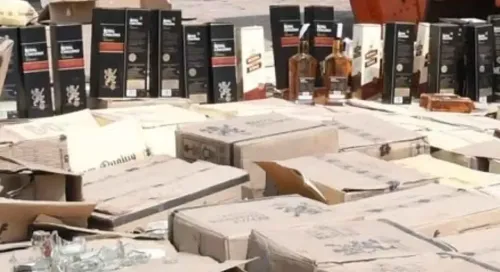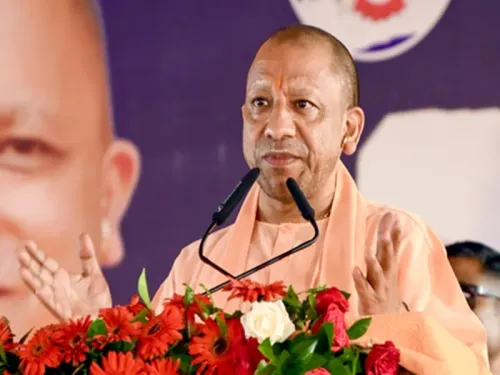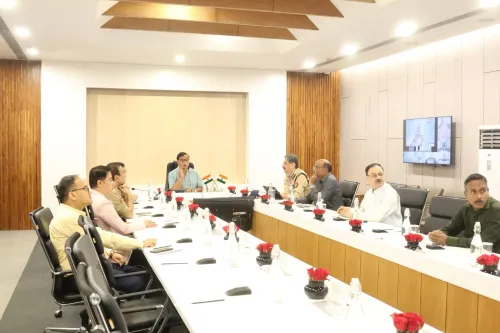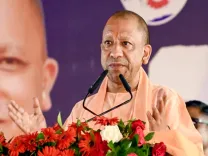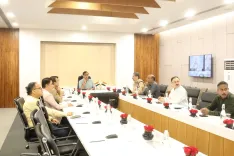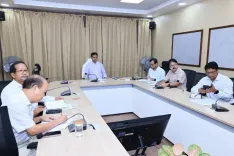Over 12.3 Crore Rural Households Granted Tap Water Access in Six Years: Minister
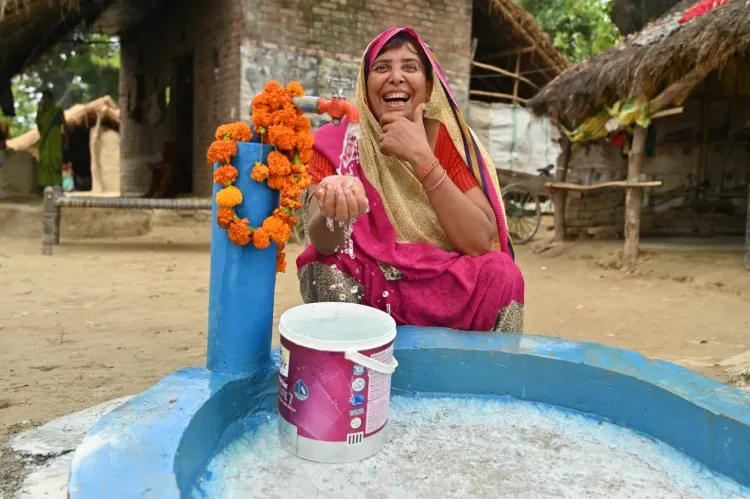
Synopsis
Key Takeaways
- Over 12.3 crore rural homes received tap water connections.
- Connections increased from 3.23 crore in 2019 to 15.53 crore.
- Mission budget was Rs. 3.60 lakh crore.
- Extension of the mission until 2028 announced.
- 55 litres per capita per day service level maintained.
New Delhi, March 24 (NationPress) As of March 17 this year, over 12.3 crore additional rural homes have received tap water connections under the Jal Jeevan Mission (JJM) – Har Ghar Jal initiative, launched in August 2019, as reported to Parliament on Monday.
The count of rural households with tap water connections has surged from 3.23 crore (16.7 percent) in August 2019 to 15.53 crore as of March 17, 2025, representing 80.2 percent of the country's total rural households, according to the Minister of State for Jal Shakti, V. Somanna, in a written response to the Lok Sabha.
The minister highlighted that efforts for the remaining 3.83 crore households are at different stages of completion as per the saturation plan of the respective state or Union Territory.
Originally, the estimated budget for the mission was Rs. 3.60 lakh crore, with a central allocation of Rs. 2.08 lakh crore. The entire approved central budget by the Cabinet has nearly been utilized. Furthermore, in her Budget speech for 2025-26, Finance Minister Nirmala Sitharaman announced an extension of the Jal Jeevan Mission until 2028 with an increased total budget, Somanna stated.
The central government is executing the Jal Jeevan Mission in collaboration with states to provide safe drinking water to every rural household through functional tap water connections at a service level of 55 litres per capita per day (lpcd), maintaining prescribed quality on a consistent and long-term basis.
Given that water is a subject under state jurisdiction, the planning, approval, execution, operation, and maintenance of drinking water supply schemes fall under the purview of state and UT governments. The minister added that states and UTs are urged, through various review meetings and field visits, to ensure the functionality and quality of tap water connections in accordance with JJM standards.
Additionally, up to 2 percent of the allocation to states and UTs is designated for Water Quality Monitoring and Surveillance activities, which includes setting up and upgrading water quality laboratories, supplying chemicals and consumables, procuring equipment and field test kits for chemical and bacteriological water quality monitoring at grassroots levels, and obtaining NABL accreditation for laboratories.
States have been instructed to conduct water quality assessments using field test kits and bacteriological vials for common and area-specific parameters, such as arsenic and fluoride, in schools, anganwadis, and Gram Panchayat levels to swiftly identify waterborne risks. Moreover, states must identify and train five women from local communities to perform water quality tests at the Gram Panchayat level, the minister mentioned.
Furthermore, states and UTs are advised to carry out periodic water quality testing and take corrective actions as necessary to ensure that the water supplied to households meets the prescribed quality standards, he added.

